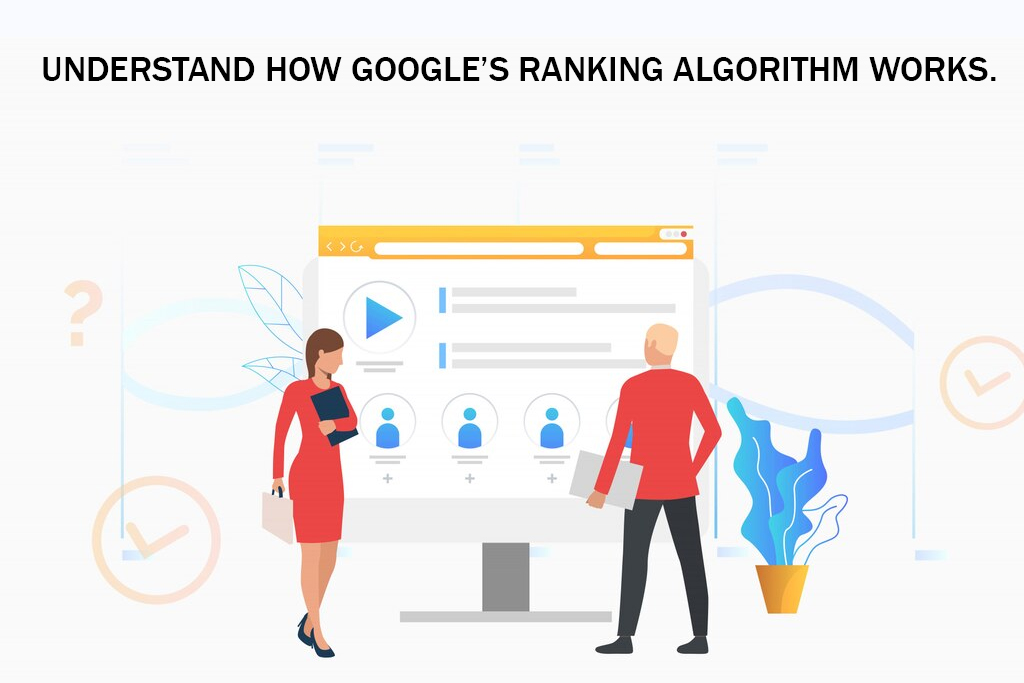Your website’s organic traffic is determined by its ranking on Google’s SERPs.To get more traffic (and therefore sales), there are a number of organic SEO strategies you can implement across your site. These range from the very easy to the more time-consuming, depending on your experience.
This blog details different strategies and tactics that will ensure your page ranks higher than the competition and that your site’s traffic doesn’t drop. If it is dropping, then these tactics can also be used as a way to get back on top.
Understand how Google’s ranking algorithm works.

Before diving into the details of what to do, it’s important to understand why we need to do it.
Google updates its search algorithm daily. Outside of these regular updates, we also know how Google’s algorithm works by looking at major updates. Recent examples include the update which favored mobile-friendly sites over those that weren’t.To see how the algorithm changes, you should consistently check your metrics on Google Analytics. Notice a big change? It might have something to do with an update from Google, so it’s essential to stay updated.
Create a backlink strategy

Generally, the more backlinks you have to your pages, the better. However, the quality of those backlinks is also very important. If spam-type sites are linking back to your site then that can negatively impact your rankings. Conversely, high-quality backlinks from authoritative sites can really improve your site’s score.
A good target to set for yourself when creating a backlink goal is to use a tool like Ahrefs to determine the “Domain Authority” of one of your main competitors (or you can use this great tool, which is free!). If your rating is close to theirs, then you should be able to compete. If not, then there are a number of different tactics to improve your domain authority rating, many of which are detailed in this guide.
Create a relevant keyword list

Your goal when making optimizations for SEO is to rank highly for target keywords which are likely to lead to sales. Firstly you’ll need to make a list of all the keywords or keyphrases which would indicate that a customer wants to buy your products.
Secondly, you’ll want to check what kind of traffic numbers each of these terms brings in with tools like SEMrush, Ahrefs, or Google’s Keyword Planner. You can get strong results from focusing on keywords that have a high volume of searches but low competition. This is where you can find your niche and start driving more traffic.
This keyword list should form the backbone of your content creation strategy. Always refer back to this list and ensure you are including the best keywords in your titles, URLs, body text, etc.
You should also include long-tail keywords in your list. These are key phrases that are much more specific than your more general keywords, but they also need your attention as they can result in much higher conversion rates. The buyer intent is usually there when the searches get more detailed.
Create meta descriptions that boost clicks
Think of the meta description as a preview of what your page contains. If the preview isn’t attractive, customers won’t click on your site in the results pages.
Your meta description is where a user decides whether to click or not so writing a compelling preview will boost your clicks. Place your most sought-after keywords in the meta description for the best results.
Remember that the keywords in the meta description that align with the searcher’s query will be highlighted in bold.
Create longer cornerstone content
Rather than having multiple short pages or posts that say roughly the same thing, the real value is in having longer pieces of content that will be shared or linked to. This is called cornerstone content and it’s something Google loves.
Writing content of a sufficient length should be a key part of your content strategy. If you’re struggling for resources to actually write content, it’s worth considering guest posts from either customers, brand advocates, or freelance writers.
If you’re in the B2B space, case studies make for great, long, longer forms of content marketing.
Start a blog and write consistently
Blogging is vital to online success and will bring you new and relevant traffic. Websites with blogs have 97% more indexed links.
Indexed links mean your business can be more effectively crawled by Google and will start to show your site more in relevant search results pages. Blogging is a long-term strategy as it will start to deliver more traffic to your site over time. But as with any of the tactics, the earlier you start, the better.
Blogs can be a really effective way to communicate more with your customer base. Seasonal shopping guides, staff selections, or product showcases are particularly effective examples that an e-commerce business could write about.
Having new blogs to share will also give you content you can promote via you social media channels or in your email campaigns.
Remember, each blog post should adhere to the previous points of being original, quality, and of a sufficient length.
Make sure your content is readable
Content needs to be readable if you want people to stay on your page. You don’t want to write scholarly articles to keep readers engaged, as most people don’t want to read that style of content.
Use the principles of clean and simple design in your writing too. Focus on high readability and alternate between short, medium, and long sentences. Amazon’s email template was leaked recently and its content is a great resource for how to write any type of online content.
Here are some other quick tips for how to format your content with readability:
- Use bullet points
- Include headings and subheadings
- Vary sentence length (with favor towards short)
- Use simple words
- Use an active voice over a passive voice
Optimize your page titles and URLs
With your earlier keyword research to hand, you can now properly optimize your page titles and URLs. It’s good practice to make sure your page title and URL both contain the keyword that will bring you the most traffic.
The title and the URL is the first place Google will look to understand what your page is about. If they see that keyword, then great. You’re about to get some relevant traffic.
Be specific to your target audience, and don’t be generic with something like “product” in your title/URL, as that could mean any kind of product.
Remember to set your alt tags
ALT tags are set to specify alternative text to display instead of images where the images can’t be rendered – this is useful for people with visual impairments who use a screen reader to view websites.
ALT tags are another place where Google will read content from your page in order to determine rankings, so putting your keywords in your tags can also result in better rankings. Everything on your site is crawled by Google to determine your site’s relevance – ALT tags are just another location to make your site more visible.
Conclusion
Ranking organically for keywords, particularly for e-commerce sites, can make a real difference to your business in terms of traffic and sales. However, it’s also constantly changing and needs regular attention.
It all begins with creating original and useful content that features the keywords that you want to rank for. Combining an effective e-commerce site with a regularly updated blog can be a very effective combo for owning your share of the traffic and sales. At AdsRole, we’re not just another digital marketing agency – we’re the game-changers you need to drive your business to the top. With numerous satisfied clients and a proven track record of success, we’re professional SEO consultants, and we know what it takes to make your organic SEO campaigns soar.










